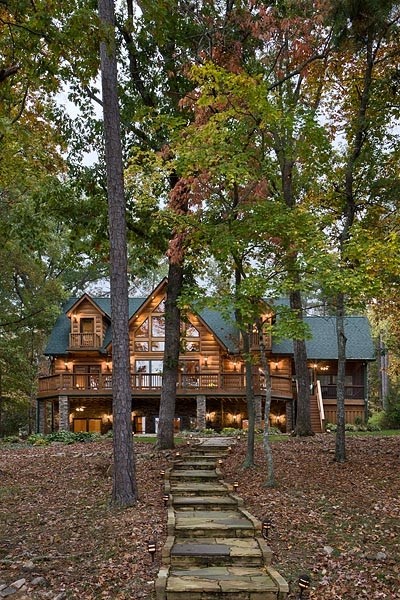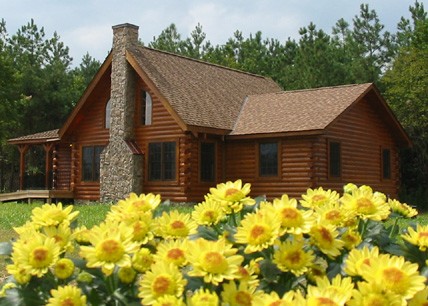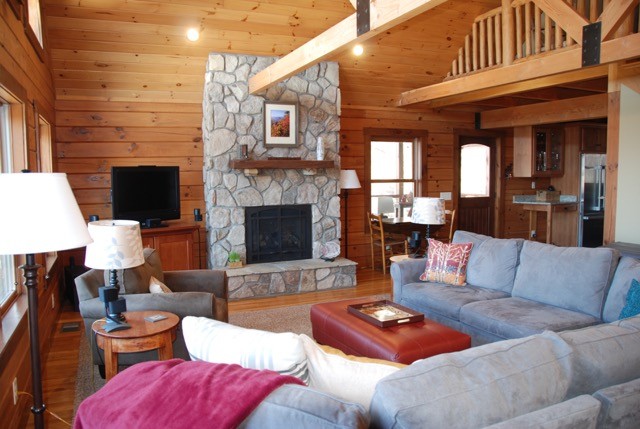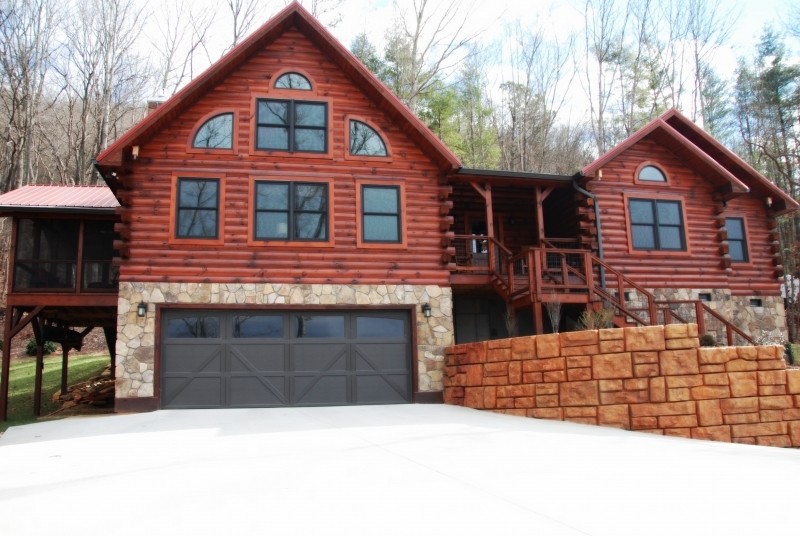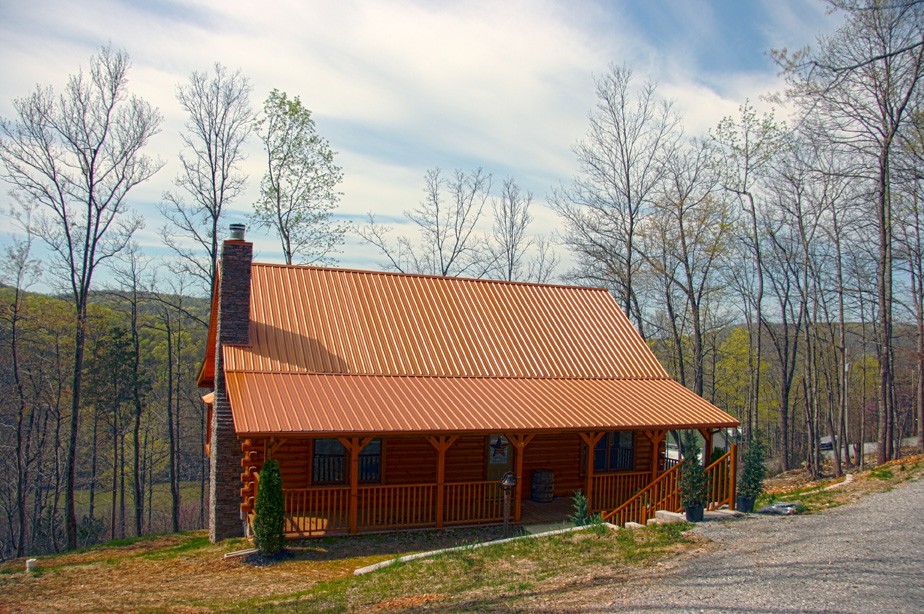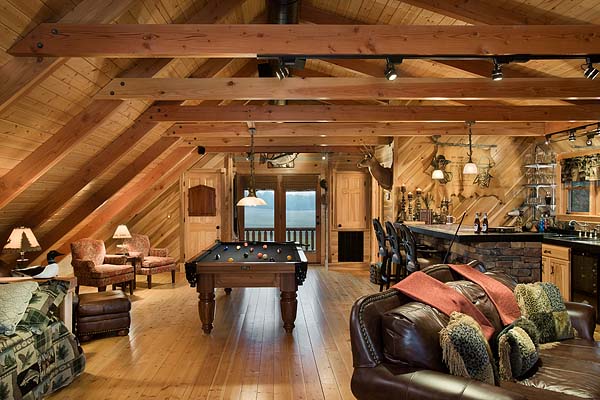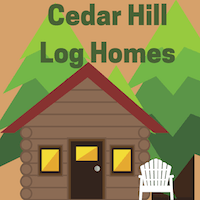
Wood Species
Eastern White Pine and Douglas Fir make a great combination.Species is Important in Crafting Beautiful, Stable and Durable Homes
You can expect stability and durability from a home by Cedar Hill Log Homes. Our manufacturer, Honest Abe, believes that the species of wood used in manufacturing a log or timber frame home is important.
The first log homes manufactured by Honest Abe were made from Yellow Poplar logs, just as the homes of early settlers to the company’s native Tennessee had been. Poplar, however, proved less than ideal for modern log home manufacturing. A difficult wood to mill, it cracked excessively and was hard to obtain in longer lengths. Several other wood species were tried by Honest Abe.
Yellow Pine, which is still in use today by many log home companies, twisted and warped, and was quickly rejected by Honest Abe. Hemlock was difficult to mill and splintered badly.
Finally, Eastern White Pine proved to be the wood with the most favorable characteristics and has been used exclusively by Honest Abe since. Douglas fir is the other species used in certain components of our structures.
If you want to know more about the characteristics of Eastern White Pine and Douglas Fir, how they are used in your log home packages and why each of these species is beneficial in log and timber home construction, below you will find the features and benefits.
Eastern White Pine has proven to be the wood with the most favorable characteristics and has been used exclusively by Honest Abe since early in its 38-year history. It is used for wall logs, log sidings, posts, porch plates, porch rafters, railings and interior trim.
- Least resinous of all pines
Few instances of “bleeding” logs - Stable – doesn’t shrink or swell significantly with changes in moisture
Less settling to contend with in log walls - Is a major species for reforestation
Renewable resource - Affordable
Lower cost for log package - One of the most used wood species in the log home industry
Time tested and proven - One of the highest R-values of all wood species
Superior energy efficiency - Easy to work and mill
Results in a precisely milled, excellent fitting product - Moderately light in weight
Easier to handle without the use of heavy equipment - Strong
Especially suited for strong log walls - Warps and checks less than other species
Fewer construction concerns and more aesthetically pleasing walls - Durable
Dependable over time - Moderately resistant to rot and insects
Properly maintained, will last a lifetime - Readily accepts decorative stains and protective finishes
Ensures simplicity of application and longevity of finish
Here’s why we use Douglas Fir for heavy timber rafters, collar ties, wall-tie trusses, ceiling beams, girders and timber frame components.
- Most plentiful of all North American softwood species
Abundance equals affordability - Naturally dimensionally stable. Has the ability to season well in position
Virtually eliminates twisting of timbers - Superior strength to weight ratio
Ideally suited for structural beams - Excellent nail and plate holding capacity
Necessary in rafter design - High degree of resistance to deflection
Important in the design of floor and roof systems - Documented superior performance against natural forces such as winds, storms and earthquakes
Peace of mind in potentially dangerous situations - Has tight knots and is close-grained
Knots less likely to loosen or fall out - Moderate durability
Rugged, withstands abuse - Natural beauty
Reddish tint provides pleasing contrast to pine within the structure - Readily accepts decorative stains and protective finishes
Ensures simplicity of application and longevity of finish
Honest Abe’s wood meets or exceeds industry standards. Honest Abe’s manufacturing staff members are certified graders under nationally recognized Timber Products Inspection (TPI) regulations. In addition to monthly industry evaluations from TPI, Honest Abe follows its own quality-control process every day to produce the best possible logs for your home.
Honest Abe averages a nine-month inventory of timbers, something many of its competitors can’t say. This reassures Cedar Hill customers that the logs for their home have already been purchased and are being prepared, sometimes many months before a prospective homeowner has even become our client. Your investment is safe with Cedar Hill Log Homes.

